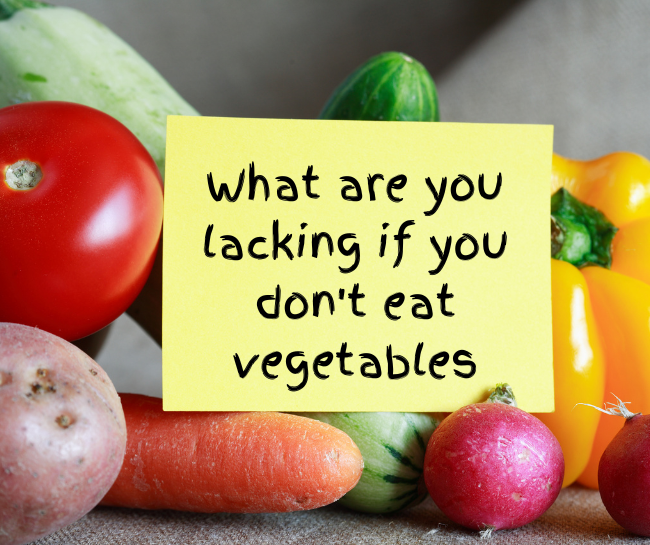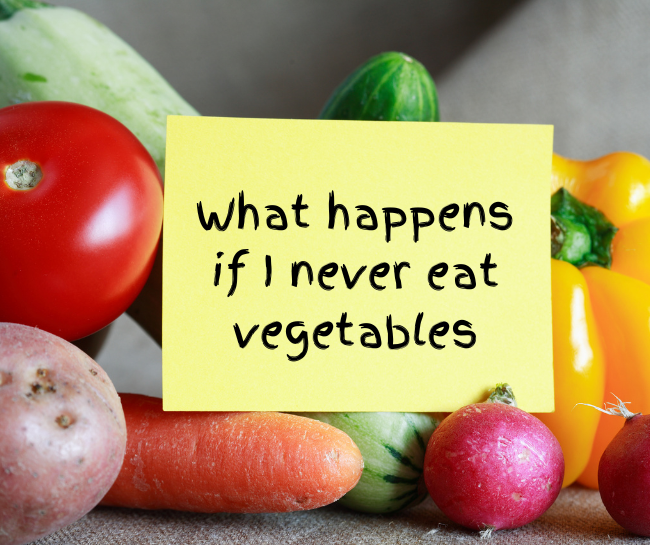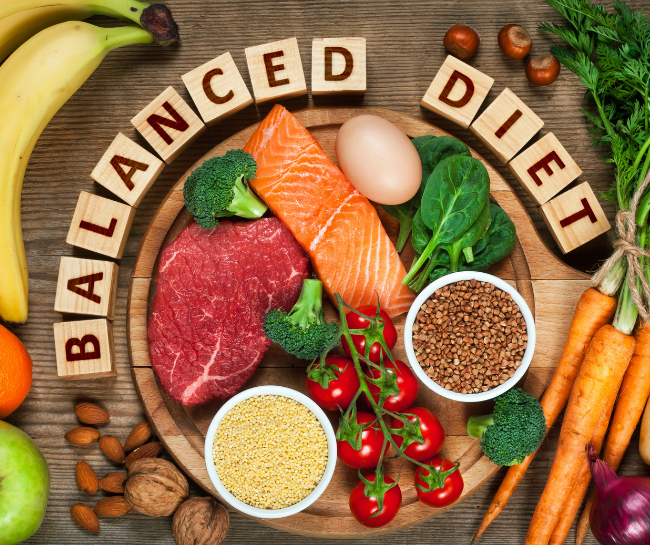Have you heard of people saying, “I don’t like vegetables, what vitamins should I take”? It’s true that people usually hate veggies. While a well-balanced diet is always the best way to get the nutrients your body needs, there are some circumstances where vitamin supplementation may be necessary.
We all know that vegetables are good for us, but many of us don’t actually enjoy eating them. So what can we do to make sure we’re getting the nutrients our bodies need? Are we out of luck when it comes to getting the nutrients our body needs? Thankfully, that’s not the case!
Most vitamins and minerals can be taken as supplements if we don’t get them properly from our food. But which ones should you take? And how do you know if you’re getting the right dosage?
This blog post will provide some helpful information on vitamins and suggest a few specific supplements that might be right for you.
Can you live without vegetables
While it is possible to live without eating vegetables, it is not advisable. Vegetables are an important source of essential nutrients, including vitamins, minerals, and antioxidants.

They also contain fibre, which helps to keep the digestive system healthy. Without a regular intake of vegetables, people can become deficient in these important nutrients.
In some cases, vitamin deficiencies can lead to serious health problems. For example, a lack of vitamin C can cause scurvy, while a lack of vitamin A can lead to night blindness.
While it is possible to get these nutrients from other sources, such as supplements or fortified foods, there is no substitute for the health benefits of eating fresh vegetables. In general, it is best to try to include at least some vegetables in your diet, even if you don’t like them all. You may be surprised at how much you enjoy them when they’re prepared in a tasty way.
What are you lacking if you don’t eat vegetables

If you’re one of those people who don’t include vegetables as a regular part of your diet, you may be wondering what exactly you’re missing out on.
For starters, vegetables are packed with essential vitamins and minerals that the body needs to function properly. They also contain fibre, which helps to keep the digestive system healthy and can even help to lower cholesterol levels. Additionally, vegetables are a great source of antioxidants, which help to protect the body against disease.
Vegetables are packed with vitamins A, C, and K, as well as fibre and antioxidants. They also contain phytochemicals, which are plant-based compounds that have been linked to numerous health benefits. not getting enough of these nutrients can lead to a whole host of problems, including vision problems, a weakened immune system, and digestive issues.
So if you’re not eating your veggies, you’re likely missing out on all of these important benefits. And while you can always take supplements to get your daily dose of vitamins and minerals, there’s simply no substitute for the real thing. So next time you’re at the grocery store, be sure to pick up some fresh produce. Your body will thank you for it!
Can I take vitamins instead of eating vegetables
Yes, it is possible to get your vitamins from supplements. However, the best option is to get them from food sources. This is because vitamins work together with other nutrients in foods, and they are also easier for your body to absorb.
For example, vitamin C helps the body absorb iron, and vitamin E protects fats from damage. In addition, most people need more than just one or two vitamins, so taking a supplement can be expensive.
A better option is to focus on eating a variety of healthy foods, including plenty of vegetables. Not only will this give you the vitamins you need, but it will also provide other important nutrients, such as fibre and antioxidants.
They are a good source of fibre, which helps to regulate digestion and prevent constipation. They also contain phytonutrients, which are beneficial plant compounds that can protect against chronic diseases such as heart disease and cancer.
So, while you can take vitamins instead of eating vegetables, it is usually a better idea to get your nutrients from whole foods. One must remember, that vitamins are not a substitute for eating vegetables.
What happens if I never eat vegetables

Do you never eat vegetables? No worries, you would technically still be able to survive. But, there are chances that your overall health would quickly begin to decline.
💡 Vegetables are an excellent source of vitamins and minerals, which are essential for the proper function of your body. Without these nutrients, you would likely become sick more often, and your immune system would be weakened.
In addition, not eating vegetables can lead to weight gain and an increased risk of chronic diseases such as heart disease and diabetes. So even if you may be able to get by without eating your greens, it’s definitely not worth the risk. It’s never too late to start eating more vegetables. Even adding a few servings per week can make a big difference in your health. So don’t wait any longer – start incorporating more veggies into your diet today!
What are the benefits of taking a vitamin supplement every day
When it comes to vitamins and supplements, there are a lot of different opinions out there. However, most experts agree that everyone could benefit from taking a daily multivitamin or supplements.
💡 Even if you eat a healthy diet, it can be difficult to get all the nutrients your body needs from food alone.
One simple example is Vitamin D. Major source of Vitamin D is obtained from Sunlight however not every region gets adequate sunlight to ensure we get the minimum amount of Vitamin D so in cases like this, supplements surely help and are essential.
Vitamins can help to fill in the gaps and ensure that your body is getting everything it needs to function at its best. In addition, vitamins can help to boost energy levels, immunity, and overall health. So whether you’re looking to improve your diet or just want to make sure you’re getting all the nutrients you need, taking a daily vitamin supplement is a good idea.
Are there any side effects associated with taking a vitamin supplement on a daily basis

While vitamin supplements can be a convenient way to get the nutrients you need, it’s important to be aware of the potential side effects before you start taking them. The most common side effect is an upset stomach, which can be caused by taking too high of a dose or by taking the supplement on an empty stomach. In rare cases, vitamin supplements can also cause dizziness, headaches, or nausea.
💡 If you experience any of these side effects, it’s important to stop taking the supplement and consult with a doctor. Vitamins are generally safe. But, it’s always best to talk to a medical professional before starting any new supplement.
For instance, taking too much Vitamin A can lead to joint pain and stiffness, while too much Vitamin D can cause kidney stones. In addition, certain B vitamins can interact with medications such as blood thinners and birth control pills.
As with any medication or supplement, it is always best to speak with a healthcare professional before starting a new vitamin regimen. They can help you determine the right dosage for your individual needs and make sure that there are no contraindications to be aware of. With that said, taking a daily vitamin supplement can be a great way to ensure that you are getting the nutrients you need in order to maintain your health.
How to choose the right multivitamin for you

There are a lot of different multivitamins on the market, and it can be tough to know which one is right for you. If you’re not eating a balanced diet, you may need a multivitamin to help fill in the gaps. Here are a few things to keep in mind when choosing a multivitamin:
- First, consider what nutrients you’re lacking. If you’re not eating enough fruits and vegetables, you may need a supplement that’s high in vitamins A, C, and E. On the other hand, if you’re not getting enough calcium, you’ll want a supplement that has calcium added.
- Second, think about your lifestyle. If you have a physically demanding job or are an athlete, you’ll need more vitamins and minerals than someone who has a sedentary lifestyle. Make sure to choose a multivitamin that’s tailored to your activity level.
- Third, consider any health conditions you have. If you have diabetes or heart disease, for example, you may need a different supplement than someone who is healthy. Talk to your doctor about which multivitamin is right for you.
By keeping these things in mind, you can be sure to choose the right vitamin supplement for you.
Taking your vitamins with food or on an empty stomach
Vitamins are an important part of our diet, and they can be found in many different foods. However, the body doesn’t always absorb vitamins as well when they’re consumed with food. For some vitamins, it’s better to take them on an empty stomach, while other vitamins are best absorbed when taken with food.

Vitamins A, E, and K are fat-soluble, meaning that they’re best absorbed by the body when taken with food that contains fat. This is because these vitamins are stored in the body’s fatty tissue. Vitamins B and C are water-soluble, so they’re not stored in the body and need to be replenished more frequently. These vitamins are best absorbed when taken on an empty stomach since food can interfere with their absorption.
If you’re taking a multivitamin, it’s usually best to take it with food. This way, you’ll get the most benefit from the vitamins and minerals it contains. However, if you have trouble swallowing pills or you’re taking a vitamin that causes gastrointestinal upset when taken with food, it’s better to take it on an empty stomach. Be sure to follow the directions on the supplement label for the best results. Ultimately, the best way to take vitamins is to speak with a doctor or dietitian who can tailor recommendations to the individual’s needs.

While it’s always best to get a balanced diet with all the nutrients our bodies need, sometimes that’s just not possible. In those cases, vitamin supplementation may be necessary. We’ve outlined some of the most common circumstances where vitamin supplementation is recommended, as well as the best way to go about getting the right vitamins for your needs.
So whether you’re struggling to eat enough vegetables or you’re traveling and don’t have access to a balanced diet, there are ways to make sure you’re still getting the nutrients your body needs. Have you ever supplemented your diet with vitamins? What was your experience like? Let us know in the comments!

